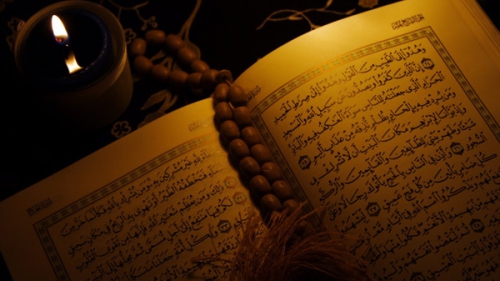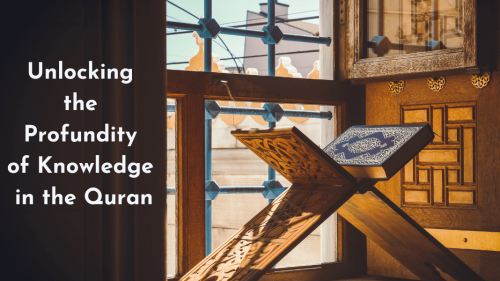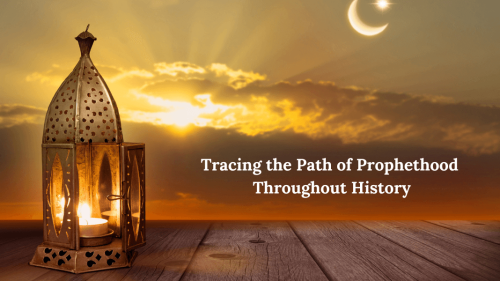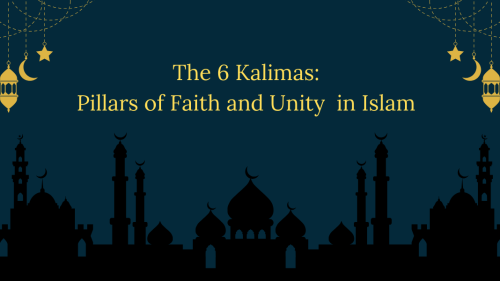What are the Important Questions in Our Life?

Are there any important questions in our life that have not been raised yet? We have taken our life for granted. We do not really know who we are, rational beings or animal beings, transgenders or homosexuals or lesbians? What is the TRUTH and REALITY of life?
Introduction
Are not we under the obligation to know what life is and what is the basis of life or what should be the foundation of our life. At a time when we are bombarded with hundreds of views and approaches via social media and other effective sources, we do not need to know what the RIGHT approach to life and thought is? We need to make sure which approach is meaningful and useful for our well-being as human beings. I would like to share here the Islamic approach to life and thought for the reflection of thinking minds. Before we know the Islamic approach to life and thought we must first know, in a truthful and realistic manner, what Islam is all about?
According to the Quran, the normative source of Islam, it is not a religion, a bundle of rites and rituals, customs and tradition, blind faith, and dogmas. It is the worldview, the way of life, code of conduct, source of morals and values based on which culture and civilization are developed. The Islamic approach to life and thought is founded on True, Authentic and Universal Knowledge [TAUK] generally known as the Islamic Revealed Knowledge which is contained in the Quran and Sunnah. We generally do not study the Quran and Sunnah in a systematic way in schools and colleges. Therefore, the foundation of our life is not strong, but it is very weak. We do not know the truth and reality of both Islam and life. This is the reason that we easily become victims of greed and corruption. We are involved in crimes. We do not have a true understanding of the Islamic approach to life and thought. To know the Islamic approach to life and thought in a truthful and authentic way we need to gain the knowledge from the Quran and Sunnah.
We do not know exactly what Islam is and what is the purpose of life in truth and reality. This is the reason that neither we are dynamic nor creative in our life and thought in line with the true purpose of life.
We do not know that Islam inspires people to observe, experience, reflect, ponder, and think carefully before forming ideas and taking actions. It discourages blind following, imitation, adoption, assimilation, reconciliation, mediation etc. It encourages ethical search [rational inquiry], examination, analysis, critical and comparative studies. It leads people to think afresh and stands for creativity and innovation. It encourages people to fight against poverty and illiteracy. It supports people for education and moral upliftment, social and technological development.
The Basis of Islamic Life
There is no place in life for dogmatic faith, irrational belief, doctrine, whims, desires, fancies, guess work, imaginations, biases, prejudice, reactions, hasty decisions, metaphysical speculation, philosophical conjecture, doubt, and assumptions. The Islamic approach emphasises life and society must be based on ethically sound foundation, rationally authentic, and scientifically genuine. A fair ethical search confirms the spiritual basis of life. It is reasonably spiritual, created by the Creator, Allah SWT for a noble and meaningful purpose.
Life has a purpose and direction and destination. It is not stagnant but always moving forward. The forward march is always based on Knowledge and Wisdom which are drawn from the Quran and Sunnah. Therefore, in the scheme of a meaningful life, the emphasis is on the serious study of the Quran and Sunnah according to one’s ability and capability. There is no life without knowledge and wisdom. The knowledge and wisdom gained from the Quran and Sunnah strengthen the iman – a clear understanding and commitment to Allah SWT – develops moral personality, increases the habit of thinking and understanding, motivates for sense of sacrifice, liberates from greediness and exploitation, stops from corruption and crimes, and grants a criterion of self-assessment. If we do not see these features in life and society, it means that life is not based on Truth and Reality.
To make one’s life successful in a comprehensive sense, Islam presents a system of conscious acts of ibadah – obedience - to Allah SWT. This includes the offering of five times prescribed prayers. Delay or negligence in offering prayers reduces the chances of making life good. Five times daily prayers are the indicators of a good life. Life is always based on Knowledge - ilmul yaqeen, ainul yaqeen and haqqul yaqeen. In short, according to the Islamic approach to life, it is founded on a solid foundation of True, Authentic and Universal Knowledge [TAUK]. Hence, the commitment to the study and understanding of the Quran and Sunnah become fundamental manuals for a successful and good life.
It is the study of the Quran and Sunnah which strengthens the spiritual basis of life in which commitment to the reality of punishment and reward in the Hereafter occupies the highest priority and develops a sense of responsibility and accountability to Allah SWT.
Hence, there is no place for philosophers and thinkers who deny the truth and reality of the next world and reward and punish based on conjecture and speculation. There is no place for conjecture and speculation in life and thought for the understanding of life and the world and related metaphysical realities.
The Truth and Reality of Conjecture
We need to know whether the claims of philosophers and thinkers who consider man self-sufficient to understand the metaphysical realities are, in truth and reality, correct, true, and authentic or just the manifestation of some assumptions, sentiments and fleeting dreams. The claims that denote man as being far from the noble creature he was divinely meant to be, all stem from assumption or conjecture.
The claim that all of life is materialistic, seems to rely on speculation. In our view, one needs to realize that before the development of metaphysical, epistemological, and methodological discourse, it is imperative for us from an ethical [rational] point of view, to, first, have a correct, true, realistic, comprehensive, universal and authentic understanding of metaphysical Truth and Reality of life and the world, on the basis of a rigorous ethical inquiry supported by empirical evidence and historical facts.
We also need to understand that as far as the correct, true, and authentic understanding of metaphysical world and reality is concerned, the rational and empirical faculties of man are not sufficient. In their final search, man generally ends up merely with metaphysical speculation and conjecture instead of correct, true, and authentic understanding about man and this world. In this regard, we find some useful data in the Qur’an which invites thinking minds to ‘observe, think and understand’ the reality and nature of conjecture. The Qur’an claims:
وَمَا يَتَّبِعُ أَكْثَرُهُمْ إِلَّا ظَنًّا إِنَّ الظَّنَّ لَا يُغْنِي مِنَ الْحَقِّ شَيْئًا إِنَّ اللَّهَ عَلِيمٌ بِمَا يَفْعَلُونَ
Most of them only follow conjectures; and surely conjecture can be no substitute for truth [i.e., True, Authentic and Universal Knowledge]. Allah is well aware of whatever they do [10:36].
In fact, all those, particularly philosophers, thinkers, and scientists of the modern period, who in disregard of True, Authentic and Universal Knowledge [TAUK], invented their own religions of a sort through developing philosophies, perspectives, and even prescribed laws “to govern human life did not do this on the basis of any definite knowledge that they possessed; rather, it was the result of their conjecture and fancy. Likewise, those who followed their religious and worldly leaders did so, not because they fully knew and fully understood all that the latter espoused, rather, they followed those leaders merely on the gratuitous assumption that whatever was being taught by those great people, and [therefore] whatever had been recognized as ‘right’ by their own forefathers, must indeed be true”. 1Sayyid Abul Ala Mawdudi, Towards Understanding the Qur’an. English Translation of Tafhim al-Qur’an by Zafar Ishaq Ansari (Leicester, UK: The Islamic Foundation, 1993), 35-36.
Consequently, being devoid of True, Authentic and Universal Knowledge [TAUK] and basing themselves merely on conjecture, the people are unwillingly bound to head towards a calamitous end. For if their ideas regarding metaphysical world are flawed, any path that they take will naturally bound to lead to their doom. This is the reason that “contemporary civilization based on secular modernity and autonomy of human reason shows symptoms of severe systemic crises and eventually collapse.” 2Mohd. Kamal Hassan, “The Necessity of Relevantisation [Islah, Tajdid, Ijtihad, Ihya’, Tashih, ‘Iadat al-Nazar, Bina’ Jadid] of Islamic Revealed Knowledge Disciplines”, (2013): 2.
Hence, we find so many references in the Qur’an of the pitfalls of conjecture. People have repeatedly been reminded of the reality of conjecture and are expected to not develop their structure of philosophical thought based on conjecture. The Qur’an says:
مَا لَهُمْ بِهِ مِنْ عِلْمٍ إِلَّا اتِّبَاعَ الظَّنِّ وَمَا قَتَلُوهُ يَقِينًا
They have no definite knowledge [True, Authentic and Universal Knowledge] of it, but merely follow conjecture [4:157].
إِنْ يَتَّبِعُونَ إِلَّا الظَّنَّ وَإِنْ هُمْ إِلَّا يَخْرُصُونَ
They only follow idle fancies, indulging in conjecture [6: 116].
وَإِنَّ كَثِيرًا لَيُضِلُّونَ بِأَهْوَائِهِمْ بِغَيْرِ عِلْمٍ
Many indeed say misleading things without knowledge, driven merely by their desires [6: 119].
قُلْ هَلْ عِنْدَكُمْ مِنْ عِلْمٍ فَتُخْرِجُوهُ لَنَا إِنْ تَتَّبِعُونَ إِلَّا الظَّنَّ وَإِنْ أَنْتُمْ إِلَّا تَخْرُصُونَ
Tell them; “have you any sure knowledge that you can produce before us? In fact, you are only following idle fancies and are merely conjecturing” [6: 148].
إِنْ يَتَّبِعُونَ إِلَّا الظَّنَّ وَإِنْ هُمْ إِلَّا يَخْرُصُونَ
Those who invoke…only follow conjecture and are merely guessing [10: 66].
بَلِ اتَّبَعَ الَّذِينَ ظَلَمُوا أَهْوَاءَهُمْ بِغَيْرِ عِلْمٍ فَمَنْ يَهْدِي مَنْ أَضَلَّ اللَّهُ وَمَا لَهُمْ مِنْ نَاصِرِينَ
But the wrong-doers follow their desires without any knowledge [30: 29].
قُتِلَ الْخَرَّاصُونَ (10) الَّذِينَ هُمْ فِي غَمْرَةٍ سَاهُونَ
Doomed are the conjecturers who are steeped in ignorance and heedlessness [51: 10-11].
وَمَا تَهْوَى الْأَنْفُسُ وَلَقَدْ جَاءَهُمْ مِنْ رَبِّهِمُ الْهُدَى (23) أَمْ لِلْإِنْسَانِ مَا تَمَنَّى
They are merely following their conjecture and their carnal desires although guidance [True, Authentic and Universal Knowledge] has come to them from their Lord. Does man imagine that whatever he wishes for is right for him? [53: 23-24].
وَمَا لَهُمْ بِهِ مِنْ عِلْمٍ إِنْ يَتَّبِعُونَ إِلَّا الظَّنَّ وَإِنَّ الظَّنَّ لَا يُغْنِي مِنَ الْحَقِّ شَيْئًا
While they have no knowledge thereof. They only follow their conjecture, and verily, conjecture is no substitute for the Truth [53:28].
Despite these warnings, unfortunately, the modern philosophers concluded that human beings are most powerful beings:
…we are the most powerful beings in the cosmos; we are responsible for what happens to us and to our world. 3Helen Buss Mitchell, Roots of Wisdom (Belmont, CA: Wadsworth Pub. Co., 1999), 166.
With these fallacious assumptions based on conjecture and speculation, the foundation of metaphysics, epistemology, methodology, knowledge, and science was laid down. Reason and sense perception became supreme guides. For understanding metaphysical Truth and Reality, human reason was the fundamental source “instead of a supernatural way using revelation or the revealed word of God as found in the Bible or the Qur’an.” 4Ibid, p. 172.
The epistemology of the modern world made “the thinking of the individual ego the centre of reality and the criterion of all knowledge…” as claimed by Descartes. 5Quoted by Mitchell, Roots of Wisdom, 204. These new developments resulted in the denial of spirituality and acceptance of materialism and secularism. The modern Western science, scientific method and the philosophy of science are deeply rooted in these ambiguous isms. These isms finally destroyed “the reality of the world of Spirit” 6Seyyed Hossein Nasr, The Need for a Sacred Science (New York: State University of New York Press, 1993), 45. and accepted the human spirit and neglected “all the ambiguities and deficiencies which the latter entails.” 7Ibid.
Finally, a new concept of man was developed; one who became free from any supernatural guidance. In this way, a process of dehumanizing human beings was forged and that it promised to guarantee the well-being of people. But the observable facts and empirical realities of the contemporary world demonstrate something else. They show that instead of guaranteeing a quality of life, modern man started facing increasing problems. Rather than becoming free, man was said to enslave himself. One can observe in our contemporary world “the aggression of man against himself and the world of nature on a scale which now threatens his own existence.” 8Nasr, The Need for a Sacred Science, 46. He lives with a state of disequilibrium and chaos at every juncture of his life. “This disequilibrium leads occasionally to war, which is its most obvious and threatening symptom…. modern man has sacrificed everything at his disposal…He has raped nature with unparalleled ferocity to fulfil ever increasing ‘needs’ which in turn enable him to forget himself, his end, and the purpose of life as much as possible. 9Ibid. He has forgotten completely who he is. The “disequilibrium continues and threatens at every moment to cause the destruction of the world.” 10Ibid, p. 47. “Today those who have pondered over the human condition and the future of man with any degree of depth assert in unison that certain new and at the same time old qualities must be cultivated by man if he is to survive, qualities such as self-restraint, humility, charity towards one’s neighbour including the world of nature, magnanimity, justice, etc.” 11Ibid, p. 48.
The current body of modern Western knowledge, science, technology, philosophy of science and education fail to inculcate these noble qualities. Hence, to achieve noble goals of acquisition of noble qualities, it is necessary to bring a radical change in the existing body of modern Western knowledge and education, especially in the concept of modern Western science and its philosophy. The existing body of the modern Western knowledge, science and education are “based upon a fallacy related to the false conception of man which has grown within modern civilization since the Renaissance, a concept which posits perfection for man in his present state, a supposed perfection which is simply not there.” 12Ibid, p. 49.
According to Nasr, “No one takes it seriously enough upon himself to ask whether modern man should not begin remaking the future by reforming himself and by seeing himself as he really is, namely God’s vicegerent on earth, endowed with exceptional powers but also with great responsibility towards all creatures, a responsibility which he cannot shun at any price except through his own destruction.” 13Ibid.
Reference:
Al-Quran.
Mitchell, Helen Buss. 1999. Roots of Wisdom. Belmont, CA: Wadsworth Pub. Co.
Mohd. Kamal Hassan. 2013. “The Necessity of Relevantisation [Islah, Tajdid, Ijtihad, Ihya’, Tashih, ‘Iadat al-Nazar, Bina’ Jadid] of Islamic Revealed Knowledge Disciplines.” Unpublished Paper in Half-day Seminar on Releventization of Islamic Revealed Knowledge of Islamic Revealed Knowledge Disciplines, Collaboration of Department of Usul al-Din and Comparative Religion and CENTRIS, IIUM on 5th April 2013.
Sayyid Abul Ala Mawdudi. 1993. Towards Understanding the Qur’an. English Translation of Tafhim al-Qur’an by Zafar Ishaq Ansari. Leicester, UK: The Islamic Foundation.
Seyyed Hossein Nasr. 1993. The Need for a Sacred Science. New York: State University of New York Press.
Dr. Muhammad Mumtaz Ali started his career as an Assistant Professor in International Islamic University Malaysia (IIUM) in 1987. Since then, he has been serving in the same University. Currently, he is in the Department of Usul al-Din and Comparative Religion, Kulliyyah of Islamic Revealed Knowledge and Human Sciences.
Footnotes
Topics: Critical Thinking, Islam, Islamic Knowledge, Life And Death, Metaphysics, Modernity, Reasoning, Social System Of Islam Values: Knowledge, Spirituality, Truthfulness, Wisdom
Views: 938
Related Suggestions
















